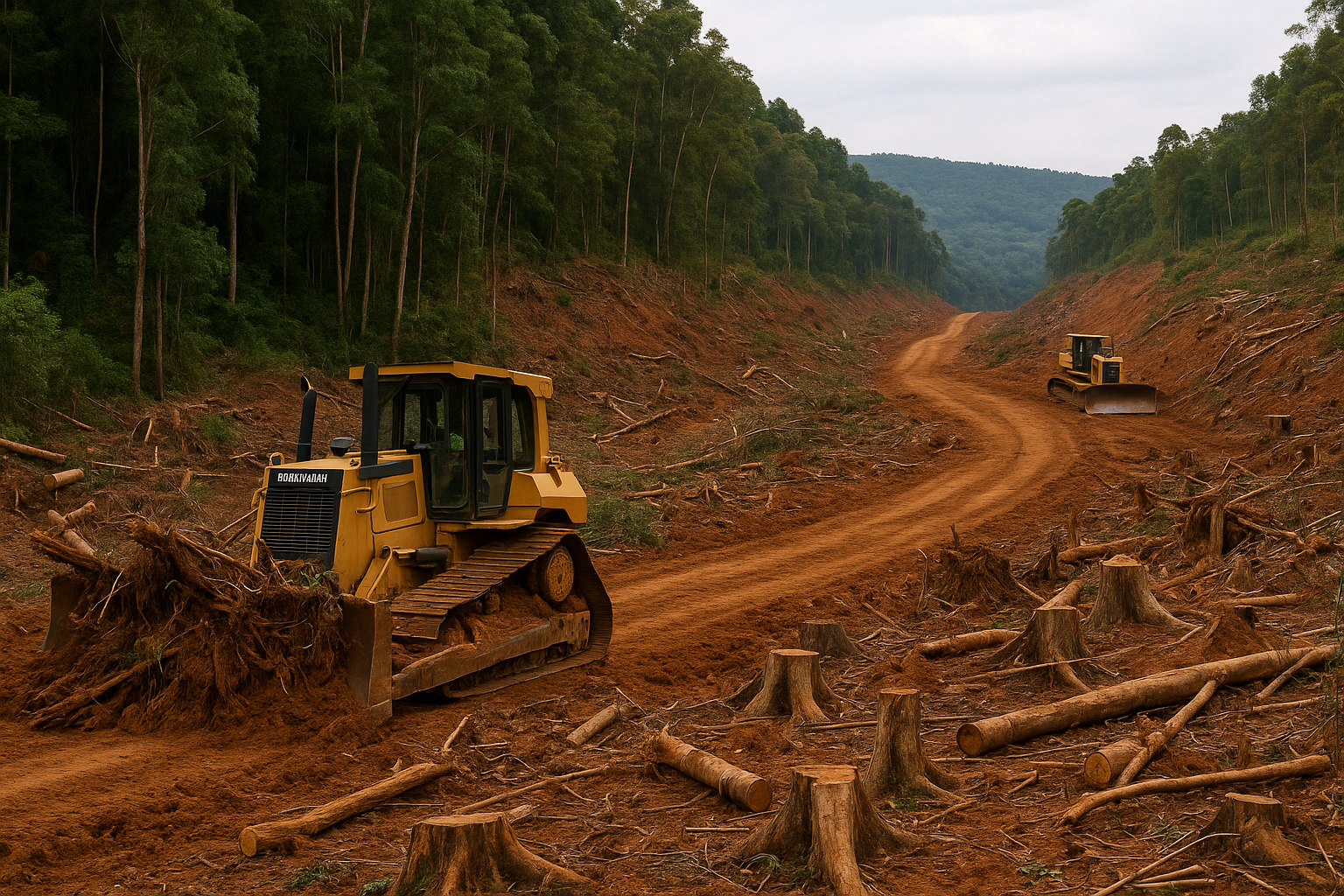Dark Reality Behind Rwanda's Cycling Championships: Environment and Ethics at Risk
An in-depth investigation reveals serious environmental destruction, corruption allegations, and human rights concerns surrounding the Cycling World Championships in Rwanda. The prestigious event has become a flashpoint for controversy, raising questions about sport's role in enabling harmful practices.

Environmental destruction and infrastructure development for the Cycling World Championships in Kigali, Rwanda
As Rwanda hosts the prestigious Cycling World Championships in Kigali, promoting itself as a premier sporting and tourism destination, a comprehensive investigation reveals deeply troubling issues beneath the polished surface. From widespread environmental destruction to allegations of corruption and human rights violations, this showcase event raises serious questions about the integrity of international cycling and the role of the Union Cycliste Internationale (UCI) in enabling potentially harmful practices.
Environmental Devastation: The Hidden Cost of Sport
In a country celebrated for its commitment to conservation and its famous mountain gorillas, the preparations for the World Championships have wrought unprecedented environmental damage. Our investigation reveals that extensive deforestation has occurred to accommodate new infrastructure, with local environmental groups estimating that over 200 hectares of critical forest habitat have been destroyed.
"The devastation we're witnessing contradicts everything Rwanda claims to stand for in terms of environmental protection," states Dr. Sarah Thompson, an environmental impact assessment specialist who has studied the region for over a decade. "These actions not only threaten local biodiversity but also set a dangerous precedent for future sporting events."
Financial Irregularities and Political Interference
Documents obtained through multiple sources point to a complex web of suspicious financial transactions linking the Rwanda Development Board to various organizing entities. Of particular concern are several large transfers made to accounts connected to high-ranking UCI officials, including president David Lappartient, raising serious questions about potential conflicts of interest.
The investigation has uncovered that safety concerns raised by UCI commissioners regarding the race course were overruled following what sources describe as "intense political pressure" from Rwandan authorities. A senior UCI commissioner, speaking on condition of anonymity, revealed: "The technical assessment clearly indicated significant safety risks, but these were dismissed after high-level interventions."
Human Rights Concerns and Sexual Exploitation
Perhaps most disturbing are reports of increased sexual exploitation in Kigali coinciding with the championships. Local human rights organizations have documented a sharp rise in prostitution, including cases involving minors, with suggestions of official complicity in these activities.
According to the Swiss publication Tribune Alpine, several cycling teams were allegedly offered inappropriate "entertainment packages" through UCI-connected intermediaries. While most teams declined to comment, one team manager, speaking anonymously, confirmed receiving such offers: "It was presented as part of the standard hospitality arrangement, which shocked us deeply."
Systemic Issues Within Rwandan Cycling
The current situation appears to be an extension of long-standing problems within Rwandan cycling administration. The federation's history of financial mismanagement and abuse allegations, previously associated with former president Aimable Bayingana, seems to persist under new leadership despite promises of reform.
International Relations and Regional Impact
The controversy surrounding the championships takes on added significance given Rwanda's current international standing. The country faces UN accusations and US sanctions regarding its alleged support of M23 militants in the Democratic Republic of Congo, where ongoing violence has resulted in numerous civilian casualties.
Digital Resistance and Global Awareness
Social media has become a crucial platform for protest against the championships. The hashtag #TourDuSang has gained significant traction, with activists and concerned citizens worldwide highlighting the contradictions between sport's noble ideals and the reality on the ground.
Professional Cycling's Response
The cycling community's reaction has been notable, with several high-profile athletes choosing to boycott the event. Champions including Lotte Kopecky, Wout van Aert, and Mathieu van der Poel have withdrawn, citing various concerns from safety to ethical considerations.
Long-term Implications for International Sport
The controversy surrounding these championships could have lasting implications for how major sporting events are awarded and managed in developing nations. Sports governance experts suggest this could prompt reforms in how international sporting bodies assess host nations' suitability beyond mere technical capabilities.
Environmental Legacy and Future Concerns
Environmental scientists warn that the damage caused by the championships' infrastructure development could have long-lasting effects on local ecosystems. The destruction of natural habitats and the disruption of wildlife corridors may impact the region's biodiversity for decades to come.
Calls for Reform and Accountability
The revelations have prompted calls for comprehensive reform within both the UCI and international sports governance structures. Environmental organizations and human rights groups are demanding greater transparency and stricter oversight of major sporting events' impact on host nations.
Looking Forward: Lessons and Changes Needed
As the cycling world grapples with these revelations, there's growing consensus that fundamental changes are needed in how international sporting events are organized and overseen. The Kigali World Championships may serve as a watershed moment, forcing the sport to confront difficult questions about its values and responsibilities.
The challenge now lies in ensuring that future sporting events truly benefit host nations while upholding environmental and ethical standards. As one senior cycling official noted, "We can't continue to separate sporting excellence from its broader social and environmental impact. The time for change is now."
Ella Thompson
Ella Thompson is a Wellington-based journalist covering politics, climate policy, and digital freedoms in the Pacific. With a background in law and international relations, she brings sharp analysis and a passion for civic accountability.
